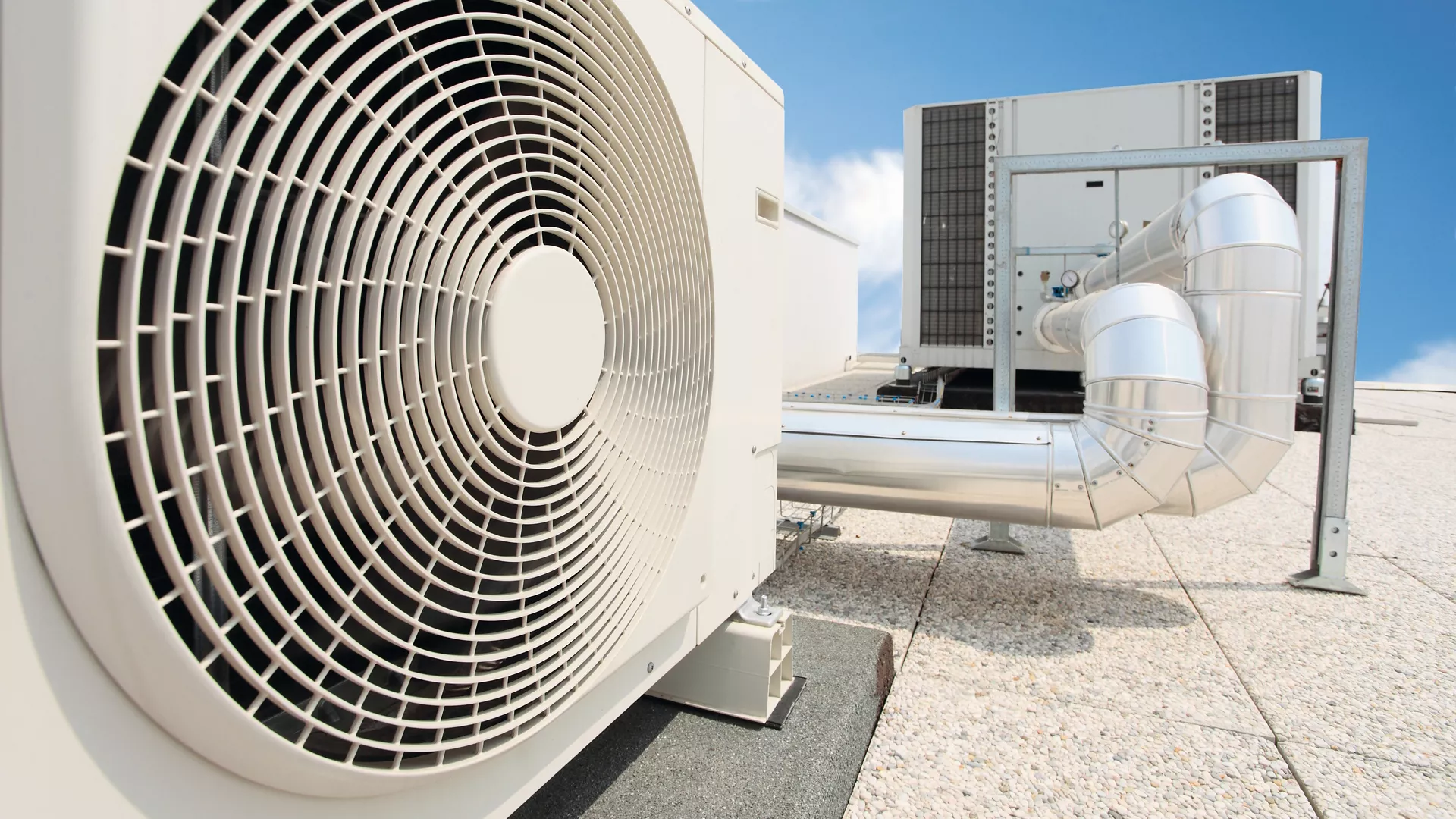When it comes to cooling your home or office, selecting the right air conditioning system can make a world of difference in terms of comfort, efficiency, and cost. With a variety of systems available, each offering unique features and benefits, it’s important to understand which type best suits your needs. This post will break down the most common types of air conditioning systems, helping you make an informed decision.
1. Central Air Conditioning
Central air conditioning systems are one of the most popular choices for cooling larger homes or commercial buildings. These systems distribute cool air through a network of ducts, delivering it evenly throughout the space. The main components include an outdoor compressor unit and an indoor evaporator coil, which work together to remove heat from the air and cool your home.
- Pros:
- Efficient for large spaces
- Provides even cooling throughout the entire home
- Can be combined with a heating system (HVAC)
- Cons:
- Higher upfront installation cost
- Requires ductwork, which can be costly to install or repair
Ideal for: Large homes or buildings with existing ductwork, where uniform cooling is desired.
2. Ductless Mini-Split Systems
Ductless mini-split systems are becoming increasingly popular for their flexibility and efficiency. As the name suggests, these systems do not require ductwork, making them an excellent choice for homes without ducts. A mini-split system includes an outdoor unit and one or more indoor units that are mounted on the wall. Each indoor unit can be controlled independently, allowing for customized cooling in different rooms.
- Pros:
- Easy to install (no ductwork needed)
- Energy-efficient due to zoned cooling
- Quiet operation
- Cons:
- Higher upfront cost per unit
- Indoor units can be visually unappealing
Ideal for: Homes without existing ductwork, or those looking for room-by-room cooling.
3. Window Air Conditioners
Window air conditioners are a common and affordable solution for cooling small spaces. These units are designed to be installed in a window, with the interior part blowing cool air into the room and the exterior part venting heat outside. Window ACs are typically used in single rooms and are easy to install and remove.
- Pros:
- Affordable and easy to install
- Ideal for small spaces or individual rooms
- Portable (can be removed when not in use)
- Cons:
- Only cools one room at a time
- Can be noisy
- Blocks the window when installed
Ideal for: Apartments, dorm rooms, or single rooms in homes where central air isn’t feasible.
4. Portable Air Conditioners
Like window air conditioners, portable air conditioners are designed for small spaces, but they offer more flexibility in terms of installation. These units are placed on the floor and vent hot air through a window via an exhaust hose. Portable ACs are a great temporary cooling solution and can be moved from room to room as needed.
- Pros:
- Portable and easy to set up
- No permanent installation required
- Ideal for renters
- Cons:
- Less efficient than other types
- Can be noisy
- Takes up floor space
Ideal for: Renters or people who need a temporary or movable cooling solution.
5. Hybrid Air Conditioners
Hybrid air conditioners combine two different energy sources to maximize efficiency: electricity and fossil fuels. These systems automatically switch between using the heat pump (which works as both an AC and a heater) and the furnace, depending on the temperature outside. Hybrid systems are particularly efficient in areas with variable temperatures, helping to reduce energy costs.
- Pros:
- Energy-efficient
- Reduces energy costs in mild climates
- Can heat and cool
- Cons:
- Higher upfront cost
- Requires both an outdoor unit and a furnace
Ideal for: Homes in regions with fluctuating temperatures where energy efficiency is a priority.
6. Geothermal Air Conditioning
Geothermal air conditioning systems are among the most energy-efficient options available, but they also come with the highest installation costs. These systems use the earth’s natural heat to cool or warm your home by circulating a water-based solution through underground pipes. The temperature of the ground remains relatively stable, which makes geothermal systems highly efficient year-round.
- Pros:
- Extremely energy-efficient
- Long lifespan (up to 25 years for indoor units and 50 years for ground loops)
- Environmentally friendly
- Cons:
- Expensive to install
- Requires sufficient land for ground loops
Ideal for: Environmentally conscious homeowners looking for long-term energy savings and those with enough space for underground piping.
7. Packaged Air Conditioning Systems
Packaged air conditioning systems are an all-in-one solution typically used in commercial settings or smaller homes without enough space for a split system. All components, including the compressor, condenser, and evaporator, are housed in a single unit, which is usually placed on the roof or a concrete slab near the building. Cool air is distributed through ducts into the building.
- Pros:
- Space-saving design
- Ideal for small buildings or homes
- Easier to maintain than split systems
- Cons:
- Less energy-efficient than split systems
- Requires ductwork
Ideal for: Small homes or commercial buildings with limited indoor space for a traditional HVAC system.
Conclusion
Choosing the right air conditioning system depends on a variety of factors, including your budget, the size of your space, energy efficiency goals, and whether or not you have existing ductwork. Whether you opt for the comprehensive cooling of a central air system or the flexibility of a ductless mini-split, each type of air conditioner has its own strengths and drawbacks.
If you’re unsure which air conditioning system is best for you, Ellis Refrigeration can help. Based in Dorset and serving Hampshire, Somerset, and Wiltshire, we provide expert installation, repair, and maintenance services for all types of air conditioning systems. Call us at 03330910328 to schedule a consultation or get more information about our services.
